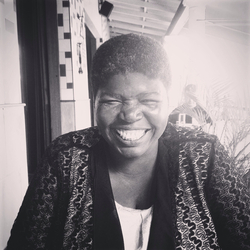|
'What is in a name?' perhaps Shakespeare was wrong and there is truly much in a name. Mighty, she is one of those ladies that blew our mind. Her passion is contagious and it is to educate parents to raise well balanced and above all, well LOVED kids. This is the way we can save a nation, she says. "If you teach parents to love their kids, those kids will in turn love their kids, and so we can break the cycle" Here are some great and simple parenting tips from Mighty
At the moment she is focusing her attention on education the parents of the kids at the nursery where she works in the Pretoria CBD. Our very first weekly Be Brave awards, goes to you Mighty!
0 Comments
Isn’t it good to know that you can make a difference wherever you are? From the tiniest gesture of validating someone at work to literally giving someone a new lease on life. It is increasingly amazing to me what a human being is capable of, all the potential we have.
Very recently my path crossed again with the Organ Donor Foundation. I never knew that one human being can save 7 people just by donating their organs. I know for some this might be a very sensitive matter for some, but I want to ask all of you to please go and check it out. Go to www.odf.org.za, and if you find it just as amazing as I did then just register and become a member. It’s quick and easy. They even send you info and stickers to stick on your ID card or drivers licence. Remember to share this great news with your friends and family. Just think YOU can save 7 people, just imagine what can happen if you share the news. Go on, BE BRAVE. Enjoyed this post from Seth Godin's blog today. Know you will too, Be Brave. Explosive action. Training by jumping from a standing start. Not worrying about getting up to speed, but going from standing still to flight. Not everyone needs to be good at this, but you can bet that most organizations need people who are. Not, "I'll think about it," or, "I'll ask Susan what her take is," or, "Let's reconvene tomorrow..." but, instead, words like, "go," and "now." Plyometrics is an attitude, the willingness (the bravery) to try things on small groups, in controlled situations, to say, "here, I made this." It's not a slipshod way of doing business for your core customers (that's another form of hiding). No, it's the posture of urgency. Will you leap? Seth Godin. The Difference Between Successful and Very Successful People LinkedIn Influencer, Greg McKeown, published this post originally on LinkedIn.
I recently met with a capable and driven executive and asked him, “How are you?” He gave me a rapid-fire answer of all of the things he was doing: travelling, business updates, career changes and his children’s innumerable activities. It sounded like an intense but satisfying life. Then I asked him again, “How are you really?” And the moment I did, he became emotional and the reality of his life just flooded out of him: his stress, his frustration of trying to juggle it all, his sense that he had no time to really think, or play with his children or enjoy any of it. The (cute) summary is this: his schedule was always filled but his life wasn’t fulfilled. What is less cute is the idea that he, and many of us, have been sold a bill of goods. We’ve been sold on a heroic ideal of the uber-man and super-women who kill themselves saying yes to everyone, sleeping four hours a night and straining to fit everything in. How often have you heard people say, “I am so busy right now!” But it almost seemed like a back-door brag. But it’s a bogus badge of honor. It suffocates our ability to think and create. It holds otherwise hard working, capable people back from our highest contribution. Below are a few of the myths of success that hold us back from becoming very successful. Myth 1: Successful people say, "If I can fit it in, I should fit it in." Truth: Very successful people are absurdly selective. As Warren Buffet is credited with having said, “The difference between successful people and very successful people is that very successful people say no to almost everything." As I wrote in a piece for Harvard Business Review, this means, "Not just haphazardly saying no, but purposefully, deliberately, and strategically eliminating the nonessentials. Not just once a year as part of a planning meeting, but constantly reducing, focusing and simplifying. Not just getting rid of the obvious time wasters, but being willing to cut out really terrific opportunities as well. Few appear to have the courage to live this principle, which may be why it differentiates successful people and organizations from the very successful ones." Myth 2: Successful people sleep four hours a night. Truth: Very successful people rest well so they can be at peak performance. In K. Anders Ericsson's famous study of violinists, popularized by Malcolm Gladwell as the "10,000 hour rule," Anders found that the best violinists spent more time practicing than the merely good students. What is less well known is that the second most important factor differentiating the best violinists from the good ones was actually sleep. The best violinists averaged 8.6 hours of sleep in every 24 hour period. Myth 3: Successful people think play is a waste of time. Truth: Very successful people see play as essential for creativity. Just think of Sir Ken Robinson, who has made the study of creativity in schools his life's work. He has observed that instead of fueling creativity through play, schools actually kill it: "We have sold ourselves into a fast-food model of education, and it's impoverishing our spirit and our energies as much as fast food is depleting our physical bodies. Imagination is the source of every form of human achievement." Myth 4: Successful people are the first ones to jump in with an answer. Truth: Very successful people are powerful listeners. As the saying goes, the people who talk the most don't always have the most to say. Powerful listeners get to the real story. They find the signal in the sound. They listen to what is not being said. Myth 5: Successful people focus on what the competition is doing. Truth: Very successful people focus on what they can do better. The "winningest coach in America" is Larry Gelwix, the former Head of the Highland High School rugby team. His team won 418 games with only 10 losses in over 36 years. One of the key questions he challenged his players to ask was “What’s important now?" He didn't want his players getting distracted with what the other team was doing. He wanted them to play their own game. Last week I took a tour of the Kennedy Presidential Library in Boston, Massachusetts. One of the quotes there grabbed my attention. John F. Kennedy said, "The great enemy of the truth is very often not the lie, deliberate, contrived and dishonest, but the myth, persistent, persuasive and unrealistic." The myth here is celebrated in modern culture: it’s someone who is capable, driven and wants to win and be popular. They have been rewarded for their willingness to take it all on, fit it all in and just make it happen. They believe doing more is better than doing less. I call this type of person a Nonessentialist. Still, there is a new hero in our story. She asks, “What is essential?” and is willing to eliminate everything else. He says no to the less important activities so they can give themselves fully to the few things that really matter. It is a path that takes courage. It may require making the tradeoff between short-term popularity and long-term respect. It leads to a greater sense of control and even joy. But as an added benefit it also seems to be the thing that distinguishes the successful from the very successful. |
Curated BlogThis is a curated blog filled with great stuff on teams we have found in our wanderings Archives
August 2017
Categories
All
Increase your team's engagement 6 timesUnderstand your partner better //
|



 RSS Feed
RSS Feed



